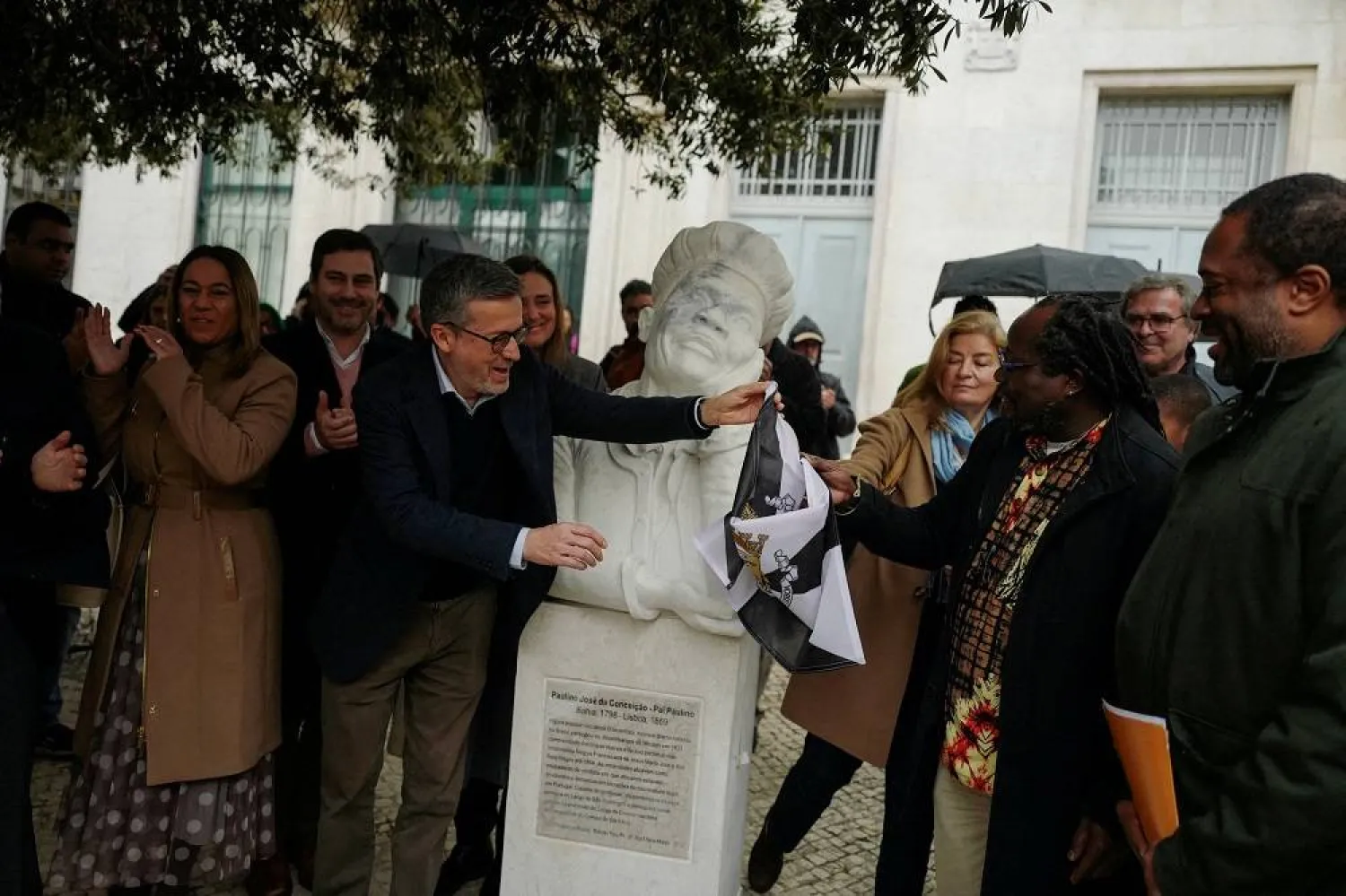Plaques turning the spotlight on Lisbon's role in slavery and "silenced" African history have been installed in different locations across the city, a long-awaited moment for many given the country's lack of acknowledgement of its colonial past.
From the 15th to the 19th century, more than six million Africans were kidnapped and forcibly transported by Portuguese ships and sold into slavery, primarily to Brazil, but little is taught in schools about it and Portugal's colonial past is often seen as a source of pride.
Twenty plaques were installed at sites of historical significance, including at one of the capital's main squares, Terreiro do Paco, on the riverside where many enslaved Africans disembarked.
"More than erased, history was silenced," Jose Lino Neves, from Batoto Yetu, the association behind the project, said at the initiative's launch event on Saturday.
He argued it was important to recognize the city's links to slavery and how Africans and people of African descent, from doctors to journalists, have contributed to Portuguese society.
Another plaque has also been installed at the Rossio square, where for centuries the Black community gathered for festivities, fairs and performances.
The association has also installed a bust of Pai Paulino, a well-known defender of the rights of Black people.
"African history is much bigger than this negative and sad episode (of slavery)," Neves said, describing the transatlantic slave trade as a "break in Africa's development".
The plaques have been ready since 2020 but the project, backed by the city hall, has been repeatedly delayed for various reasons, from financial constraints to mayoral leadership changes.
Portugal's first memorial to victims of slavery, which will also be funded by the city hall, was approved as part of Lisbon's 2017-2018 budget but construction has been delayed since then.
Neves said it would be important for Portugal to have a museum of African history.
Europe's top human rights group previously said Portugal had to do more to confront its colonial past and role in slavery to help fight racism and discrimination today. Activists have argued that reparations and public policies to fight inequalities caused by Portugal's past were essential.









